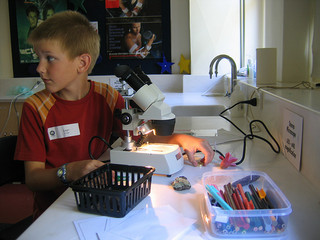
Image by mikebaird via Flickr
What’s the “adversity advantage” and why should we teach our kids to overcome challenges?
Simply put, kids who have the opportunity to practice problem-solving and bounce-back skills in childhood become adults who are better prepared for hitting life’s inevitable bumps in the road.
Everyone faces challenges. Unfortunately loving parental instincts can conspire to help us keep from preparing our kids for this reality. Challenges present choices: Better or bitter? Conquer or quit? Victor or victim?
Overcoming adversity is something most of us will face many times in our lives. Financial and family stresses, job losses, blending families, accidents, illness, bad teachers and unfair bosses… things don’t always go the way we have planned. Sometimes stresses just pile up and become too much. People can become overwhelmed and helpless. And, although there is no real way to prepare for much of what will come our way, it is still true that learning to overcome small challenges prepares us to tackle bigger ones.
It is also true that a child who has been raised to equate “obstacle” and “struggle” with “no”, “you can’t” or “don’t try” is starting off at a significant disadvantage over those who believe that obstacles push us to be better… to be as good as we can be.
Love for our children can make parents fearful and unreasonable. We want to protect them from danger — real or imagined. We want to spare them any –sometimes all — discomfort. While these decisions may be motivated by love and the best of intentions, this is a strategy that too often backfires. When parents choose to satisfy our “need to be needed” we may inadvertently slow our children’s steps toward independence.
Creating a bubble of privilege and protection around our children may make parents feel good in the short run. Unfortunately, that’s a “feel good” that can’t touch the pride you can feel as children grow and become independent adults. I’m not sure there’s anything more fulfilling than watching them develop bigger and better problem-solving skills, overcome new obstacles and achieve new goals is as they grow.










